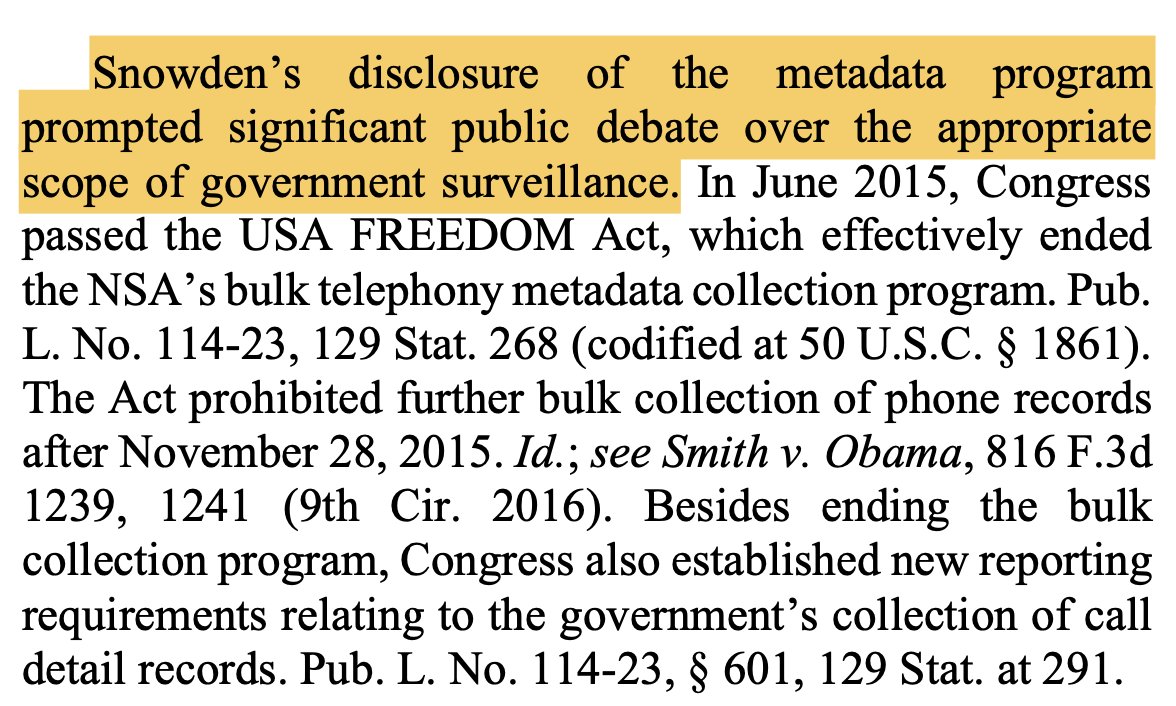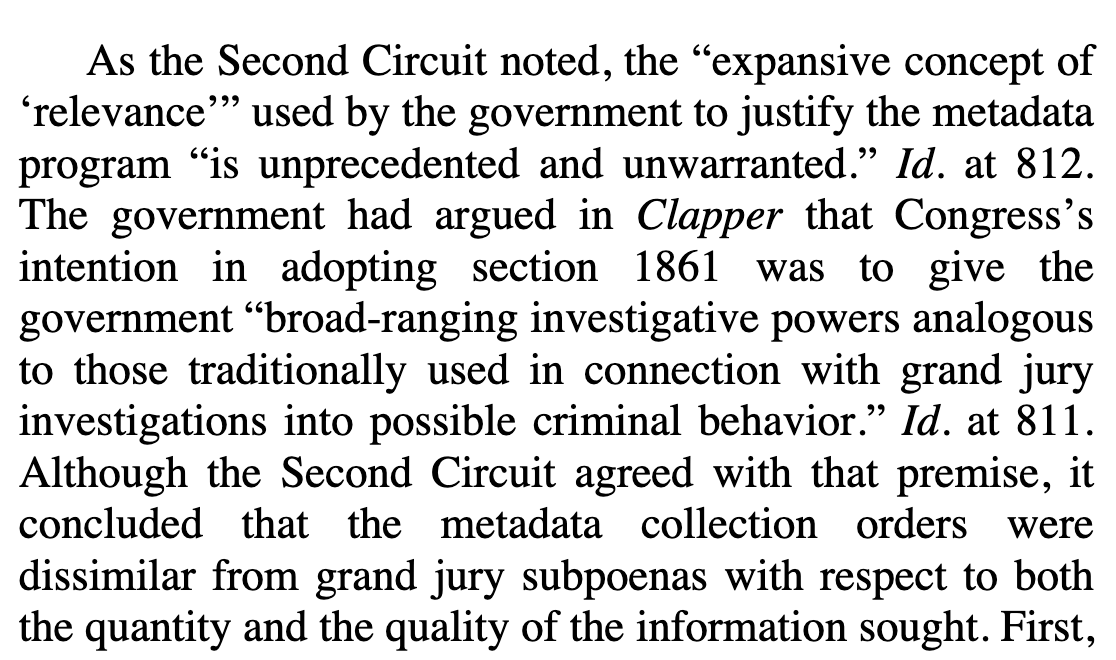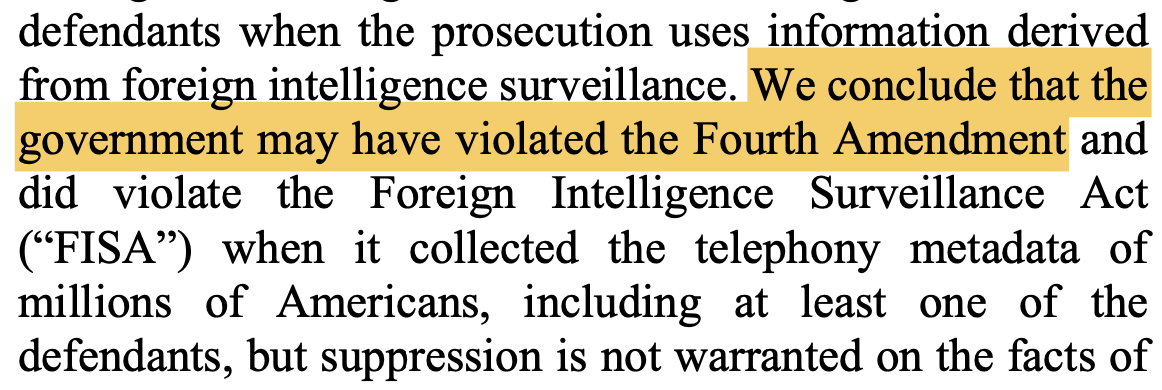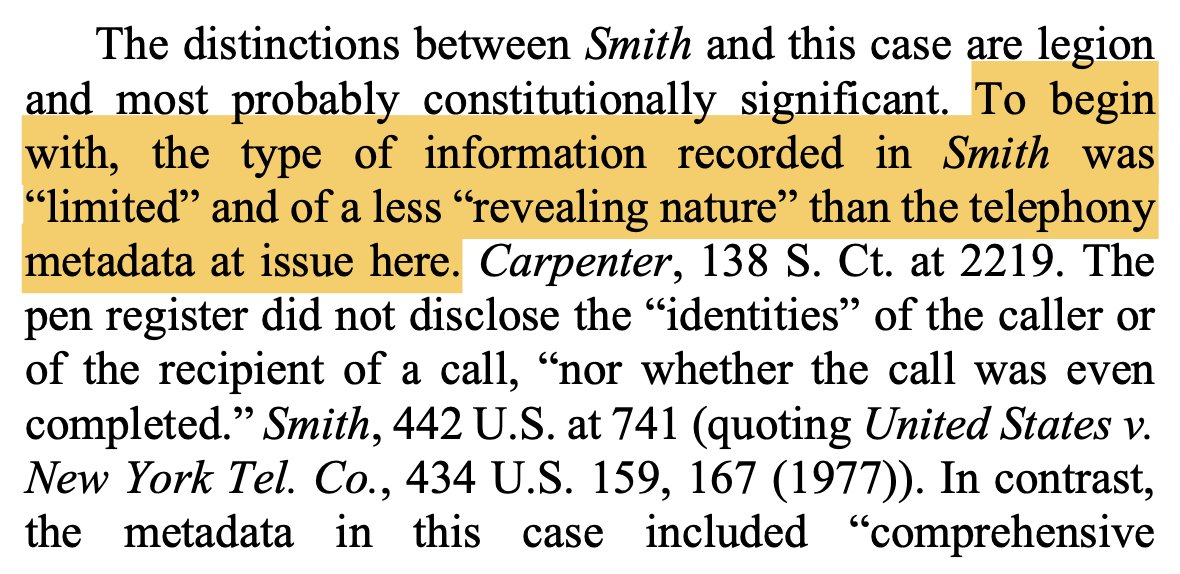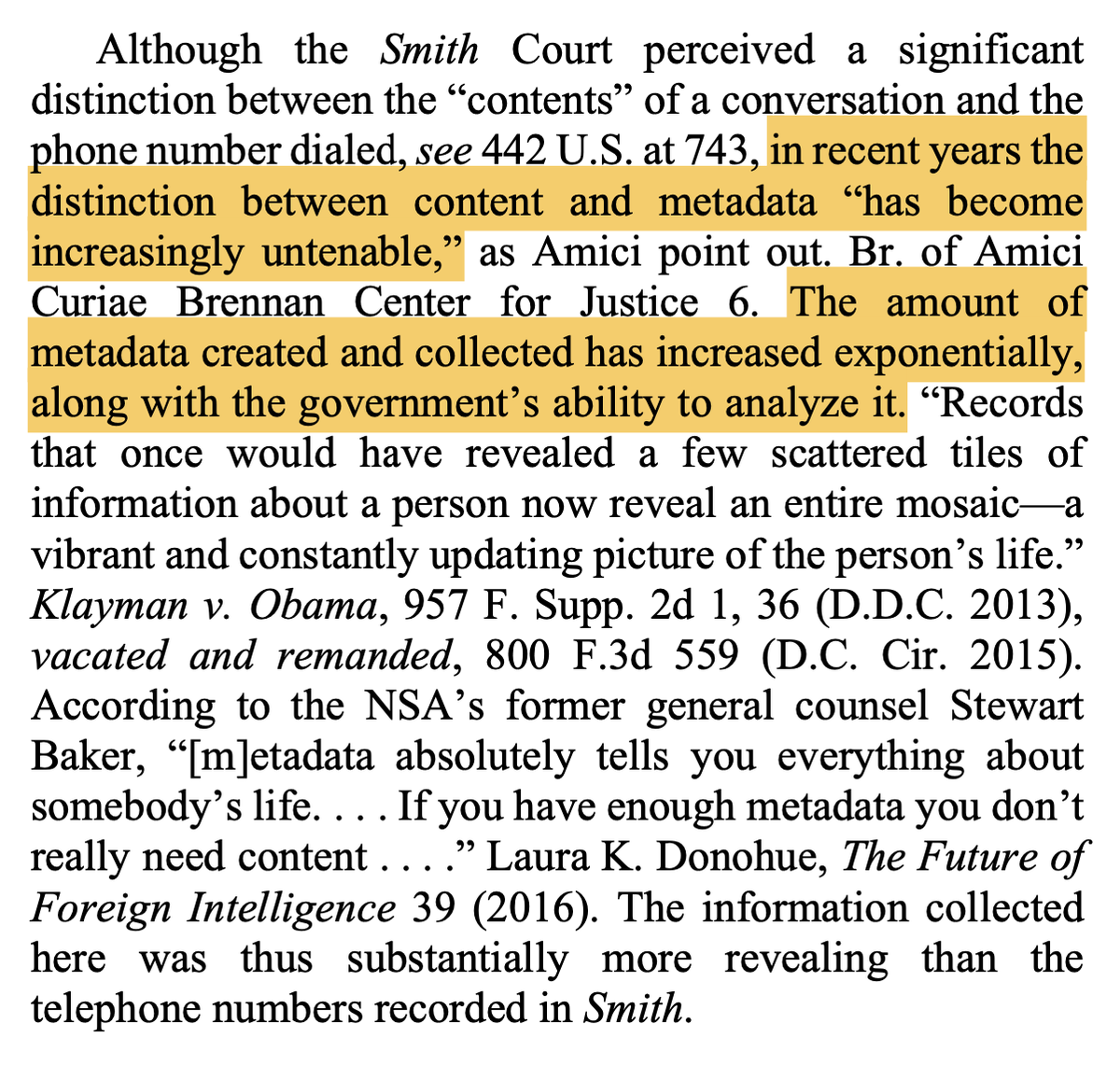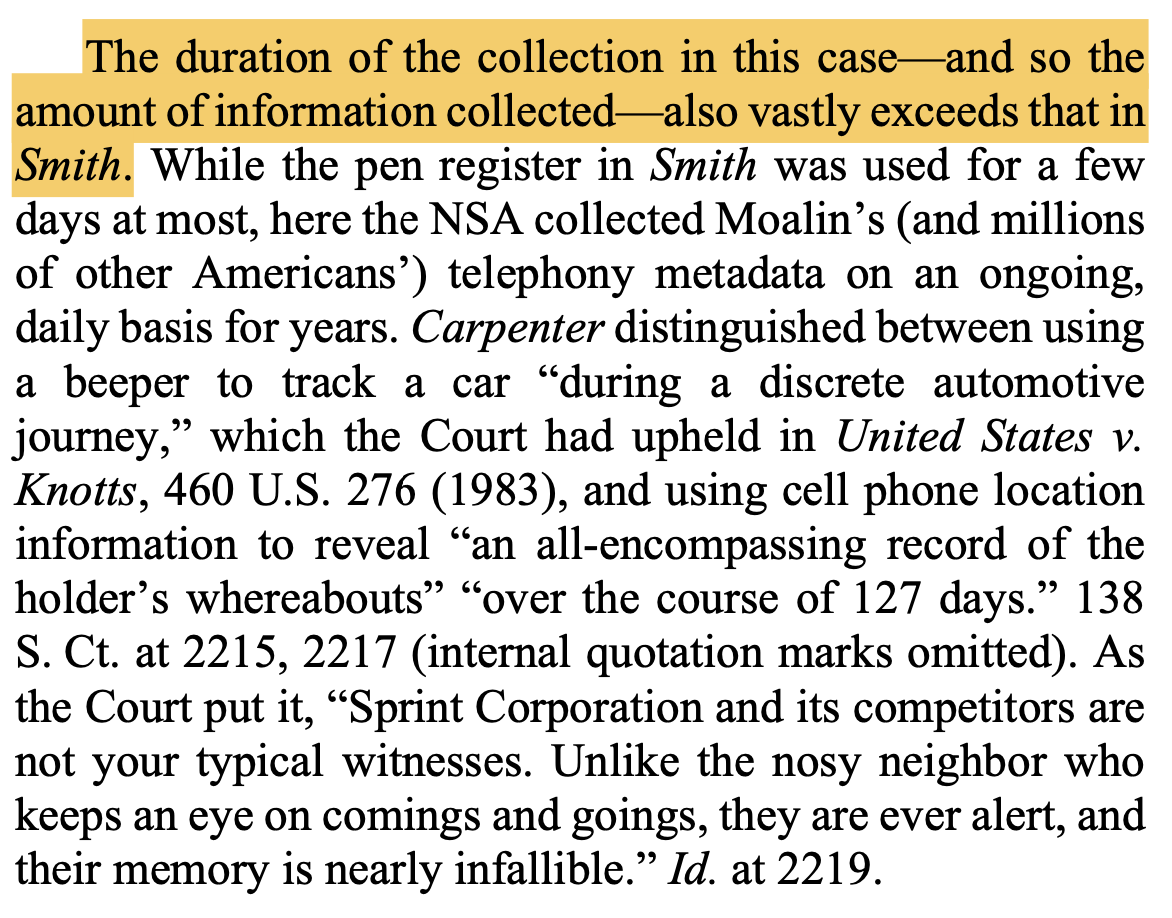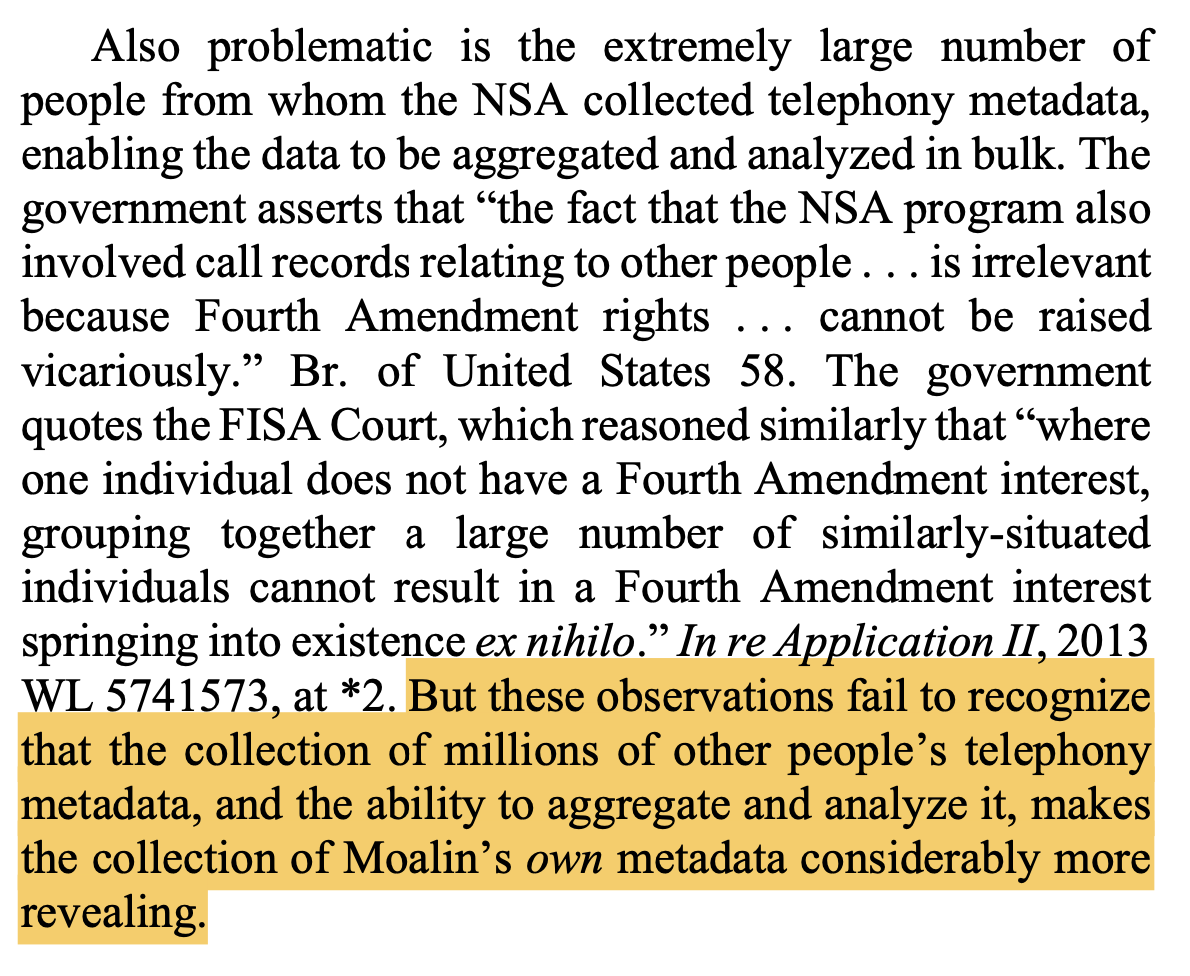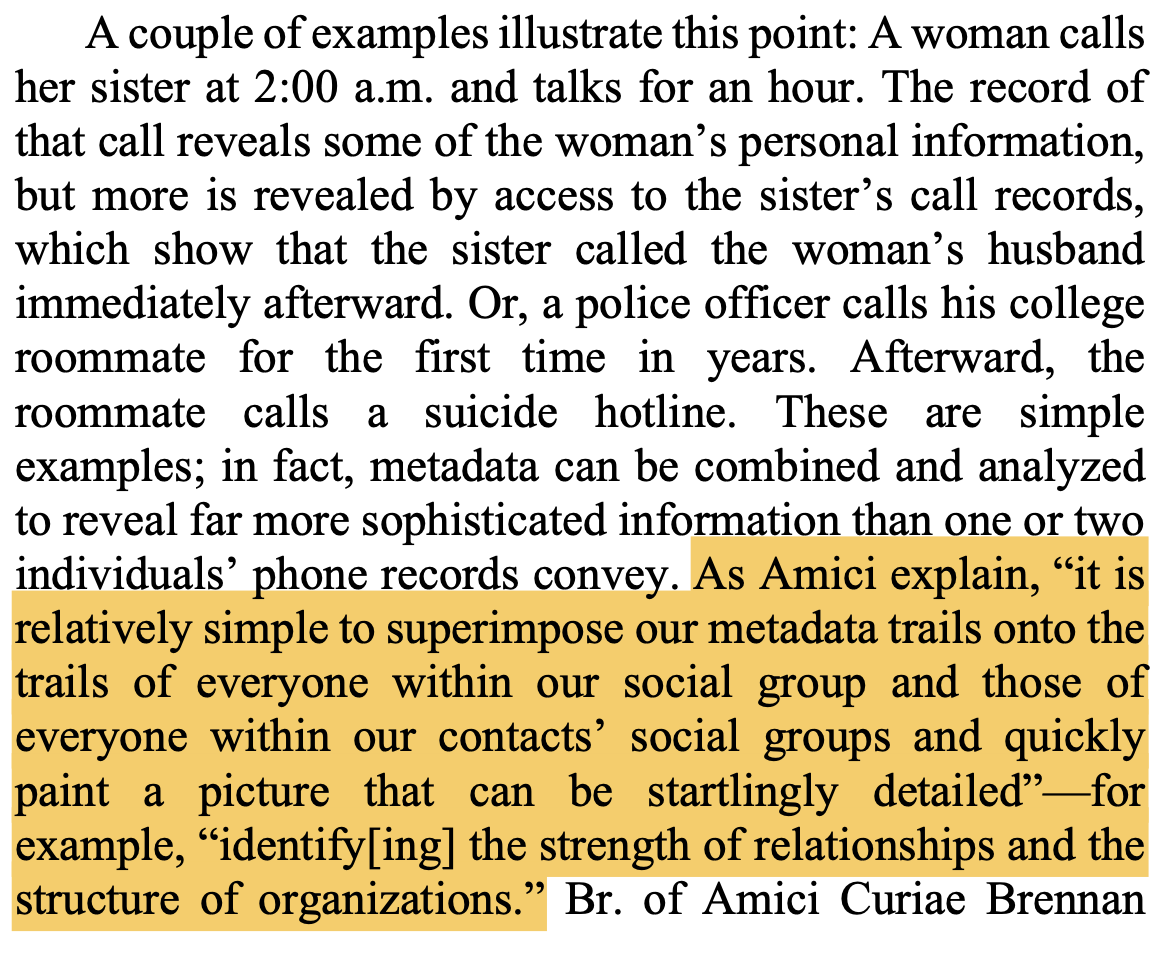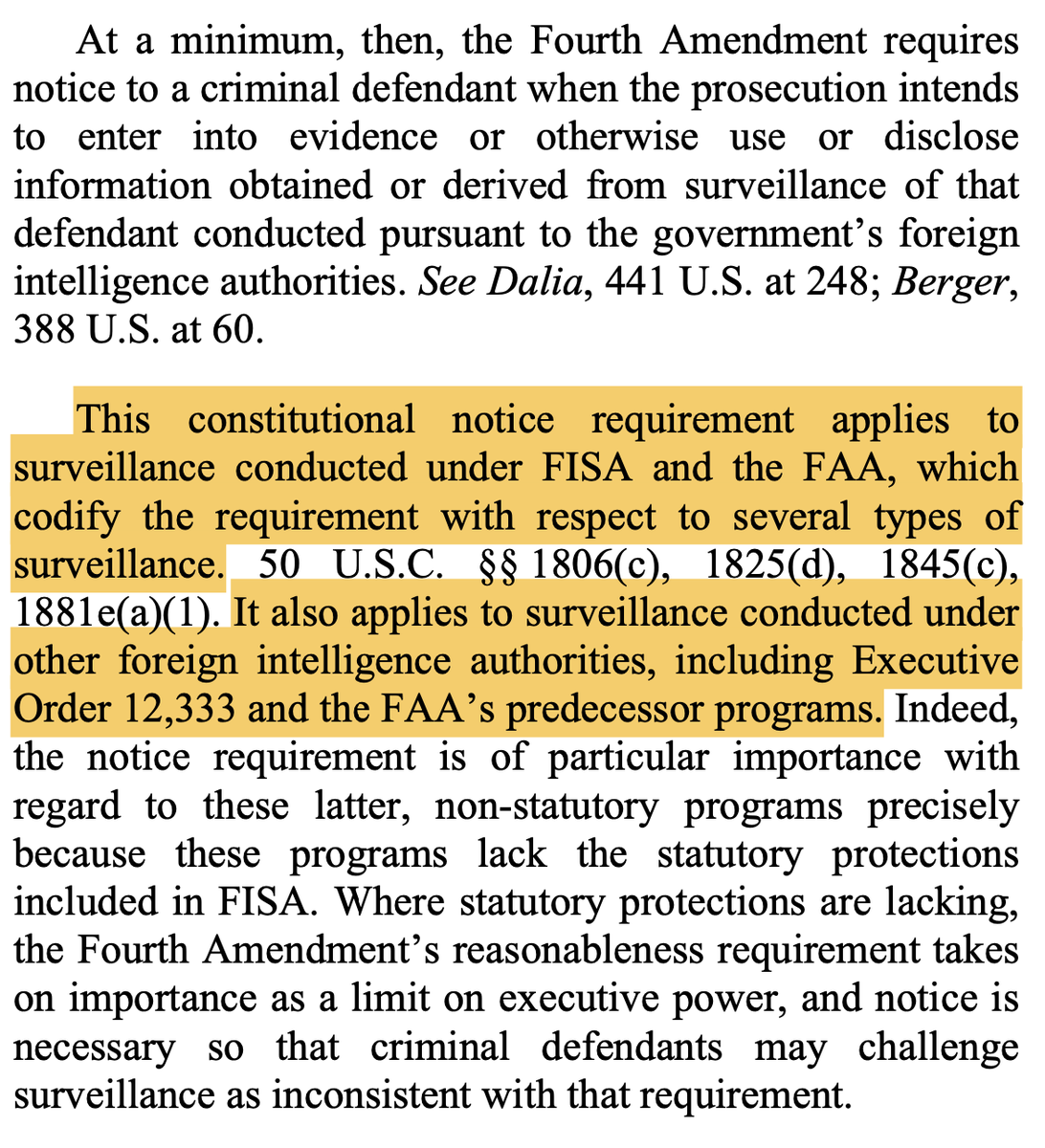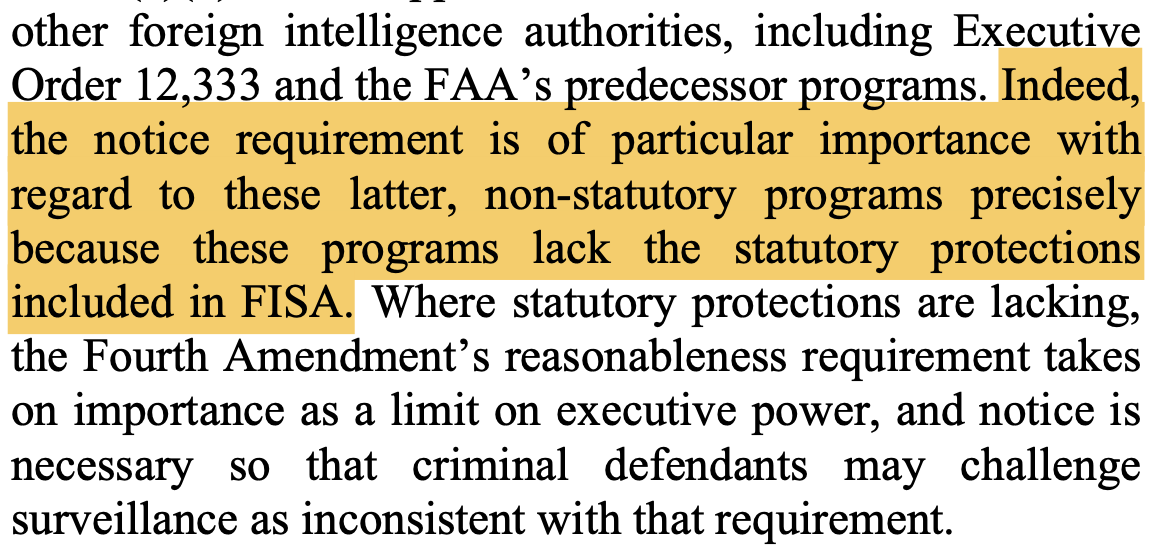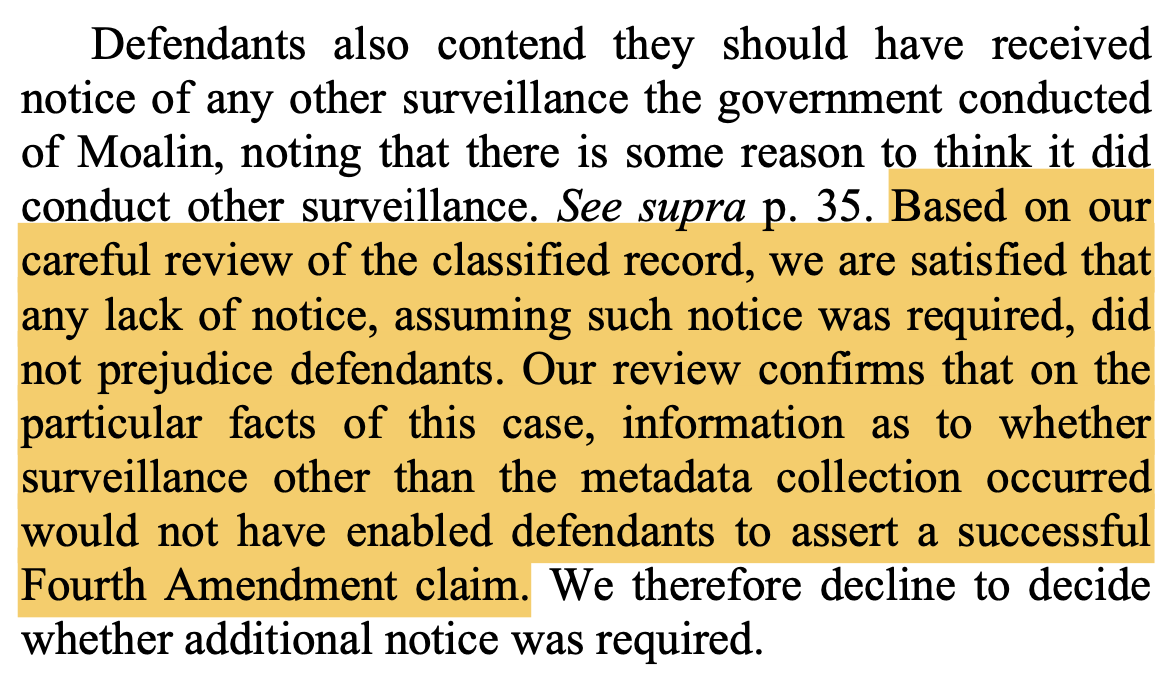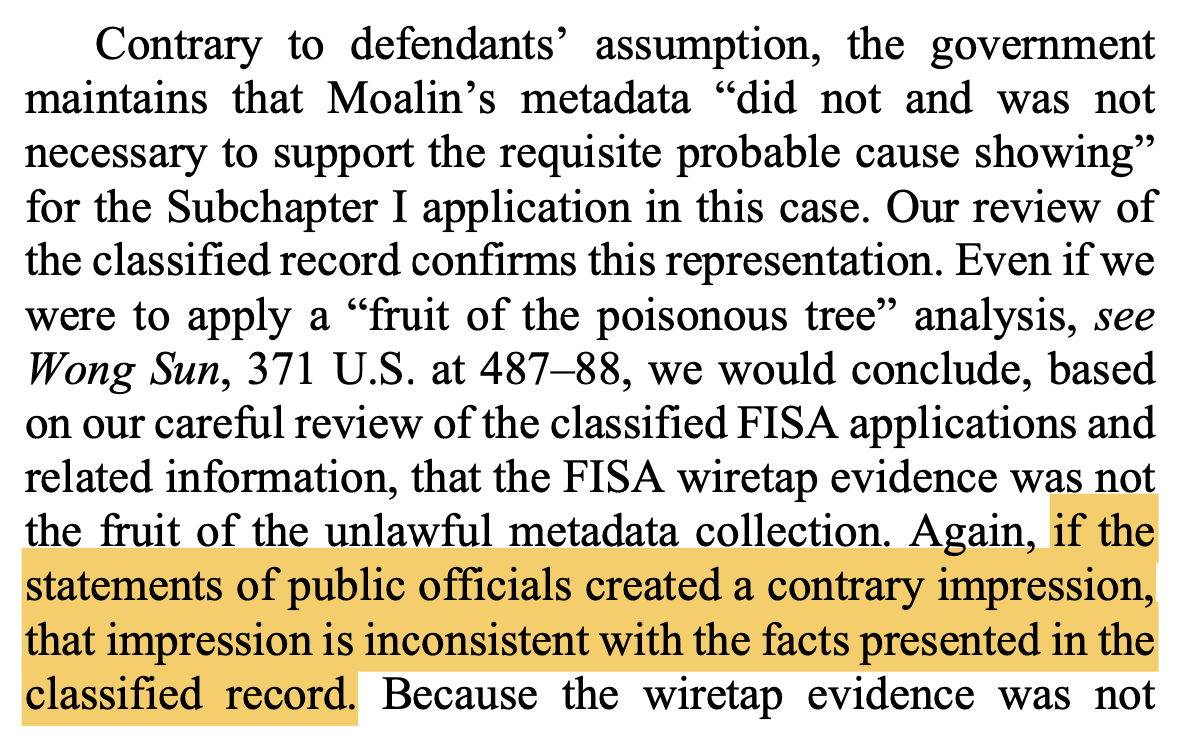The last case I argued at the ACLU just got decided—nearly 4 years later. It was a while in the making, but it& #39;s an important ruling on NSA surveillance. Read the opinion at the link, and read on here for a few of thoughts about the decision. https://www.aclu.org/legal-document/united-states-v-moalin-ninth-circuit-opinion?redirect=legal-document/us-v-moalin-ninth-circuit-opinion">https://www.aclu.org/legal-doc...
First, this decision wouldn& #39;t have been possible without Edward @Snowden& #39;s disclosures. They enabled groundbreaking reporting on digital surveillance, an international reckoning on digital privacy, and of course a domestic reckoning—in Congress and the courts—on NSA surveillance.
The work to rein in overreaching NSA surveillance is far from over, but it& #39;s worth pausing to consider that nearly all the progress we& #39;ve made has come because of disclosures criminalized by a law—the Espionage Act—that makes no exception for disclosures in the public interest.
Second, the Ninth Circuit joined the Second Circuit in holding that the NSA& #39;s call-records program was unlawful. The gov& #39;t argued that the call records of everyone in the country are "relevant" to its terrorism investigations. The court properly rejected that outlandish claim.
Third, the court said that the NSA& #39;s call-records program was probably unconstitutional. The court didn& #39;t resolve the question definitively, because it held that suppression of the evidence would not be warranted in any event.
Still, the court& #39;s analysis of the Fourth Amendment question is significant, especially when lined up against the arguments that gov& #39;t lawyers and the secretive FISA court embraced to justify the program.
Most notably, the court effectively rejected the argument that the NSA& #39;s call-records program is constitutionally indistinguishable from the warrantless pen register that the Supreme Court upheld in Smith v. Maryland in 1979.
... that the gov& #39;t& #39;s ability to collect and analyze large quantities of metadata has made the distinction between content and metadata "increasingly untenable."
... that the pervasive collection of call records under the NSA& #39;s program was different in kind from the few days of collection in Smith in 1979.
... and, very significantly, that the collection of *everyone& #39;s* call records made the collection more intrusive as to each *individual*.
Collectively, these points add to the burgeoning judicial recognition that individually minimal intrusions of privacy can amount to an unconstitutional invasion in the aggregate. This is a critical move for protecting privacy in the digital age.
Fourth, the court held that the government must provide notice to criminal defendants prosecuted with evidence obtained or derived from NSA surveillance.
This was perhaps the court& #39;s most unprecedented and therefore significant move. The NSA& #39;s most expansive surveillance authorities, which come from Executive Order 12,333, do not have a notice requirement.
Advocates have long argued that the Fourth Amendment itself imposes a notice requirement, but the gov& #39;t has never provided notice of EO 12,333 surveillance (to my knowledge, anyway), and it& #39;s not clear that the gov& #39;t has ever believed it had an obligation to do so.
As the court explained, however, notice is especially important for the NSA& #39;s less-regulated forms of surveillance, because notice is the only chance at imposing a judicial check on that surveillance.
Still, it& #39;s not clear what effect this notice ruling will have. The gov& #39;t takes a narrow view of whether evidence was "obtained or derived from" NSA surveillance. And the notice requirement only kicks in when that predicate is met. https://www.justsecurity.org/14040/executive-order-12333-notice-due-process-rights-criminal-defendants/">https://www.justsecurity.org/14040/exe...
Also, the court excused the gov& #39;t& #39;s possible violation of the notice requirement (w/r/t to possible other surveillance) because, based on its "careful review" of the classified record, the defendants would not have been able to make a successful Fourth Amendment claim.
In other words: The gov& #39;t must provide notice to ensure judicial review, but in this case, the alleged failure to provide notice was not problematic b/c after judicial review we would& #39;ve ruled against you.
This logic seems a bit circular. Hopefully, courts will not rely on it as a template for instituting a new kind of secret and post hoc review to excuse the gov& #39;t from its notice obligation.
Fifth, add this opinion to the stack of judicial accusations that the government has lied in its defense of the legality and necessity of controversial NSA surveillance programs.
Recall that the gov& #39;t pointed to Moalin& #39;s prosecution as a supposed success story of the NSA& #39;s call-records program. Moalin relied on that public claim as proof that evidence from the call-records program was an important link in the chain of evidence used against him.
And on that basis, he argued that any evidence "derived from" the call-records program should have been suppressed.
The Ninth Circuit rejected that claim, b/c the gov& #39;t& #39;s public claim about the role of the call-records program was inconsistent with the actual evidence.
The Ninth Circuit rejected that claim, b/c the gov& #39;t& #39;s public claim about the role of the call-records program was inconsistent with the actual evidence.
One final note. This opinion relied multiple times for crucial points on a fantastic amicus brief submitted by, among others, the @BrennanCenter, @EPICprivacy, @rcfp, @NACDL, @ALALibrary, and @FTRF. Great recognition for an important brief. /END https://www.brennancenter.org/our-work/court-cases/united-states-v-moalin">https://www.brennancenter.org/our-work/...

 Read on Twitter
Read on Twitter